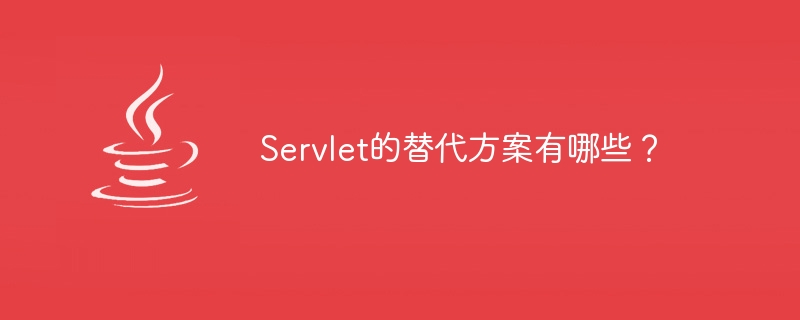

Servlets have long been the cornerstone of Java-based web development. However, as Web technology has evolved, several alternatives to Servlets have emerged, providing a variety of features and paradigms suitable for different development needs. This article provides an overview of these alternatives and discusses their advantages and applicability in different situations
A Servlet is a Java program that runs on a Web server and acts as an intermediary between requests from a Web browser or other client and the server's response. Although servlets are a powerful technology for building web applications, they can become complex when used in large applications. Let’s explore some popular alternatives that can resolve these complexities.
JavaServer Faces (JSF) is a Java Web application framework developed by Oracle Corporation. It provides a simplified model for building user interfaces by dividing different aspects of application programming and providing a variety of reusable UI components. JSF is a good choice for developers who prefer a component-based, event-driven programming model similar to desktop application development.
Spring MVC is a module of the Spring framework that provides a robust and flexible environment for developing Java applications. It provides a Model-View-Controller (MVC) architecture that separates the concerns of data processing, user input, and presentation. The main advantage of Spring MVC is that it integrates seamlessly with other parts of the Spring ecosystem such as security, transaction management, and dependency injection.
For developers focused on creating RESTful services, JAX-RS is an excellent alternative to Servlets. It provides a rich set of annotations for developing lightweight, scalable, and maintainable RESTful services. JAX-RS is part of the JavaEE specification and is compatible with various application servers.
Grails is a powerful Groovy-based web framework that runs on the Java Virtual Machine (JVM). It follows the "code by convention" paradigm, reducing the configuration overhead and boilerplate code associated with servlets. Grails integrates smoothly with Spring MVC and Hibernate, making it a good choice for developers already familiar with these frameworks.
Play Framework is a responsive web application framework that supports Java and Scala. It provides a simplified development experience by eliminating the need for a servlet container and providing hot code reloading. Play Framework's reactive model enables it to handle more concurrent requests with fewer resources, making it suitable for high-performance applications.
Vert.x is a multi-language event-driven application framework that runs on the JVM. It provides an alternative to traditional Servlet-based applications with its simple concurrency model and high scalability. With its event-driven architecture, Vert.x can handle large numbers of concurrent connections, making it ideal for real-time web applications.
Choosing the right web development technology often depends on the specific requirements and constraints of the project. While servlets have been the first choice for many developers, the alternatives we discussed offer unique features that may be better suited for certain applications. Carefully evaluate your project needs and choose the technology that best suits your requirements, scalability needs, and team expertise.
The above is the detailed content of What are the alternatives to Servlets?. For more information, please follow other related articles on the PHP Chinese website!




